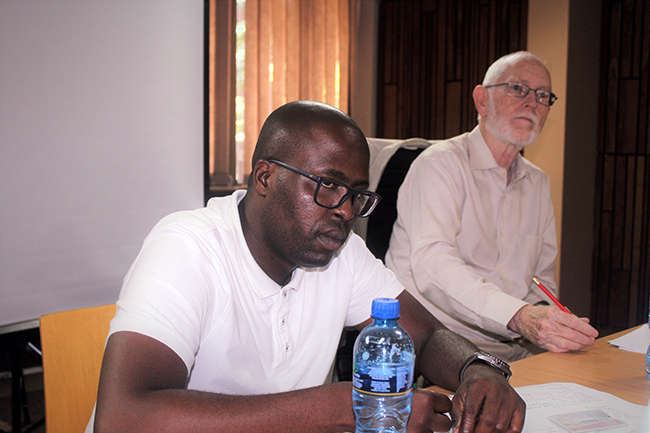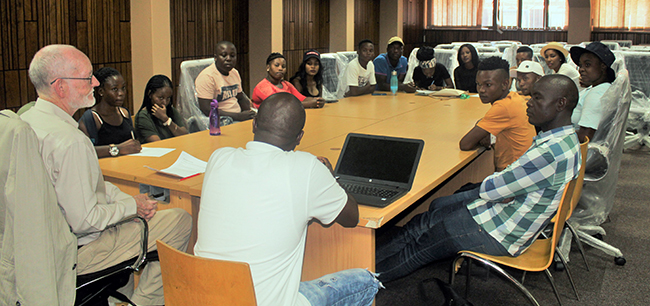News & Events
College of Education strengthens the experience of studying BEd
The vision ‘towards the African University shaping futures in the service of humanity’ is a major driver of many initiatives by Unisa to seek ways of improving service to students. On 19 February 2019 Unisa’s College of Education hosted a focus group on the experience of studying their Bachelor of Education (Bed) qualification. It was focused on the knowledge and skills gained through studies.
According Professor Emeritus John Aitchison (University of KwaZulu-Natal) the project is the initiative of the Department of Higher Education and Training, which set up a task team that consists of representatives from Unisa and a number of senior educational academics to look at Unisa’s role and capacity as the largest teacher training institution in South Africa.

John Sebothoma (Teaching, Learning, Community Engagement and Student Support: Education) and Prof. Emeritus John Aitchison (University of KwaZulu-Natal)
The team is looking at how teacher education at Unisa can be strengthened. Focus groups have been held at different Unisa campuses to get the opinions of students about how they experience studying BEd through Unisa, the evaluation of the benefits they get from studying through Unisa, the difficulties they experience and the changes they would like to see.
Gerald Malefehlo said that Unisa gave him an opportunity to explore and be innovative. ‘When I first came to Unisa I was not even computer literate, but now I am able to assist fellow students with their online modules,’ he said.
Caiphus Mabasa said that what stood out for him is that the content he learned taught him that school and community should work together in order to ensure quality education for learners. ‘Learners need both parents and teacher to help them to reach their full potential,’ he said.

Students attending a focus group session
Speaking about the valuable lessons learned through BEd, Malefehlo said that he really appreciates the modules that taught him about the challenges that teachers face daily. ‘They taught us how to deal with learners with special needs and how to tackle the challenges faced by learners in their everyday lives,’ he said. ‘Now we are ready to go out there and make a difference.’
The focus groups have generally found that the students had a positive experience while studying towards a BEd.
As a result of the focus group a questionnaire will be designed and distributed to all BEd third- and fourth-year students, and hopefully even graduates.
* By Edgar Rathelele
Publish date: 2019/01/28
